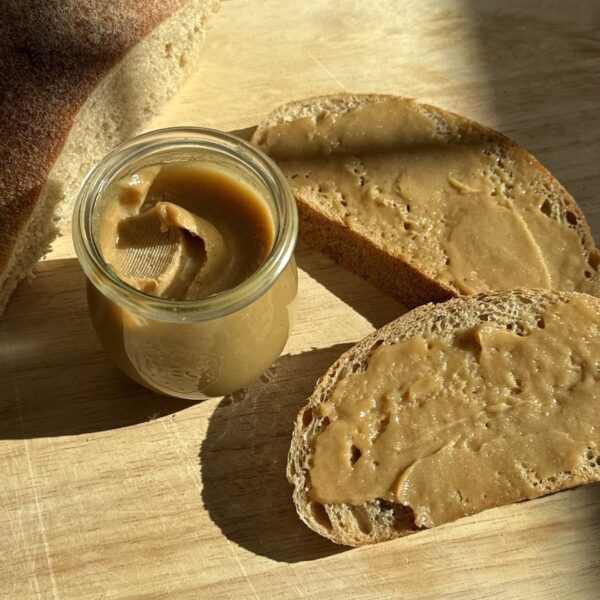Eating a healthy diet is known to directly impact the risk of developing certain diseases. In fact, many studies show the consequences and correlations between not only what you eat, but how you feel, and ultimately how you behave. Eating well also helps with sleeping patterns, energy levels, and even your mood.
Below are five very common health concerns with a breakdown of what foods to avoid and what to sub into your diet instead.
Anxiety disorders are the most common mental illness in the United States, and approximately 40 million adults—19% of the population—struggle with it.
What to avoid and why: Caffeine—if you are dealing with anxiety, it’s best to avoid that cup or two of coffee in the morning. Caffeine is a known stimulant and has a reputation for triggering the body’s fight-or-flight response. The symptoms experienced after ingesting caffeine are very similar to the signs associated with anxiety. Swap your a.m. cup of joe for an herbal tea.
What to eat and why: Research shows that diets low in magnesium may increase anxiety-related behaviors. Therefore, aim to eat foods that are naturally rich in magnesium, such as leafy greens, legumes, nuts, seeds, and whole grains. Also, foods rich in zinc including oysters, cashews, liver, beef, and egg yolks have been shown to help alleviate symptoms of anxiety.
Oftentimes seeking medical treatment and counseling is necessary to help with symptoms. However, there are some lifestyle remedies one can incorporate to help relieve symptoms.
What to avoid and why: Some foods are known to exacerbate the symptoms of depression, such as alcohol and refined food products. Drinking alcohol alters an individual’s mood and behavior and is classified as a central nervous system depressant, meaning that it slows down brain functioning, further aggravating symptoms of depression. Additionally, processed foods, especially those high in sugar and refined carbs, are best avoided and replaced with fresh, nutrient-dense whole foods. This is because when a person eats refined carbs, the body’s blood sugars spike and crash, which can make a person feel tired, fatigued, and irritable.
What to eat and why: Studies have shown that increasing selenium might help improve mood and make depression more manageable. Selenium is found in many different foods, such as seafood, organ meats, dairy products, and Brazil nuts.
An autoimmune disease is a condition where your immune system mistakenly attacks your body. Common examples include psoriasis, rheumatoid arthritis, and lupus. The key with autoimmune disorders is to keep inflammation down. Below are examples of pro-inflammatory foods to avoid and anti-inflammatory foods to eat more of.
What to avoid and why: It’s best to stay away from ultra-processed foods, such as microwaveable dinners, sugary cereals, processed meats, refined sugars, and packaged snack foods. Not only do these foods have little nutritional value, but they’re also high in salt and added sugars, which are associated with promoting inflammation in the body.
What to eat and why: To fight inflammation, aim to eat more whole, unprocessed foods with no added sugar, which include fruits, vegetables, whole grains, beans, lentils, fish, nuts, seeds, and olive oil, as well as herbs and spices like cinnamon, ginger, and turmeric. These foods are rich in antioxidants and help fight inflammation.
Also known as high blood pressure, hypertension is a very common condition that may eventually cause health problems, such as heart disease.
What to avoid and why: Sodium in salt is a major contributor to high blood pressure. The American Heart Association recommends getting no more than 2,300 milligrams of sodium—the equivalent to 1 teaspoon of salt—each day. Breads, rolls, pizza, deli meat, pickles, and canned soups are best avoided with hypertension.
What to eat and why: With hypertension, follow the DASH diet, which stands for Dietary Approaches to Stop Hypertension and was developed to help lower blood pressure. The DASH diet is a lifelong approach to healthy eating that’s designed to help treat or prevent high blood pressure. This diet emphasizes eating lots of whole grains, fruits, vegetables, fish, poultry, legumes, and small amounts of nuts and seeds a few times a week.
Polycystic ovary syndrome:
Also known as PCOS, this syndrome is one of the most common endocrine disorders, affecting approximately 10% of women of reproductive age. It’s mainly associated with infertility, hirsutism (excessive hairiness), and insulin resistance, which may lead to metabolic disorders such as diabetes and cardiovascular diseases if symptoms are not managed.
What to avoid and why: Managing insulin levels with PCOS is one of the best steps women can take to control the condition. It’s ideal to avoid refined carbohydrates, fried foods, and sugary drinks. Women with PCOS should also steer clear from saturated and trans fats, such as red and processed meats, doughnuts, and frozen pizza.
What to eat and why: Foods containing N-acetylcysteine (NAC) may improve fertility in women with PCOS by inducing the ovulation cycle. Foods with NAC include beans, lentils, spinach, bananas, salmon, tuna, sunflower seeds, chicken, turkey, yogurt, cheese, and eggs. There is also some evidence that inositol (a vitamin-like substance) helps to reduce testosterone and balance hormones in women with PCOS. Inositol naturally occurs in foods such as fruits, beans, grains, and nuts.
Balanced diets and physical activity are key to good nutrition and necessary for a healthy and long life. Take time to prioritize your daily food choices to feel and look your best today, tomorrow, and in the future.
Ayat Sleymann is a registered dietitian nutritionist whose passion lies in helping women live their healthiest life. Ayat works with women around the world, helping them achieve their weight-loss goals. With a “plants-most” approach, she has helped clients manage weight, improve their health, and increase energy and productivity without giving up their favorite foods.
The content provided in this article is provided for information purposes only and is not a substitute for professional advice and consultation, including professional medical advice and consultation; it is provided with the understanding that Poosh, LLC (“Poosh”) is not engaged in the provision or rendering of medical advice or services. The opinions and content included in the article are the views of the author only, and Poosh does not endorse or recommend any such content or information, or any product or service mentioned in the article. You understand and agree that Poosh shall not be liable for any claim, loss, or damage arising out of the use of, or reliance upon any content or information in the article.
Up next, be the first to know our weekly content and sign up for our Poosh newsletter.



































